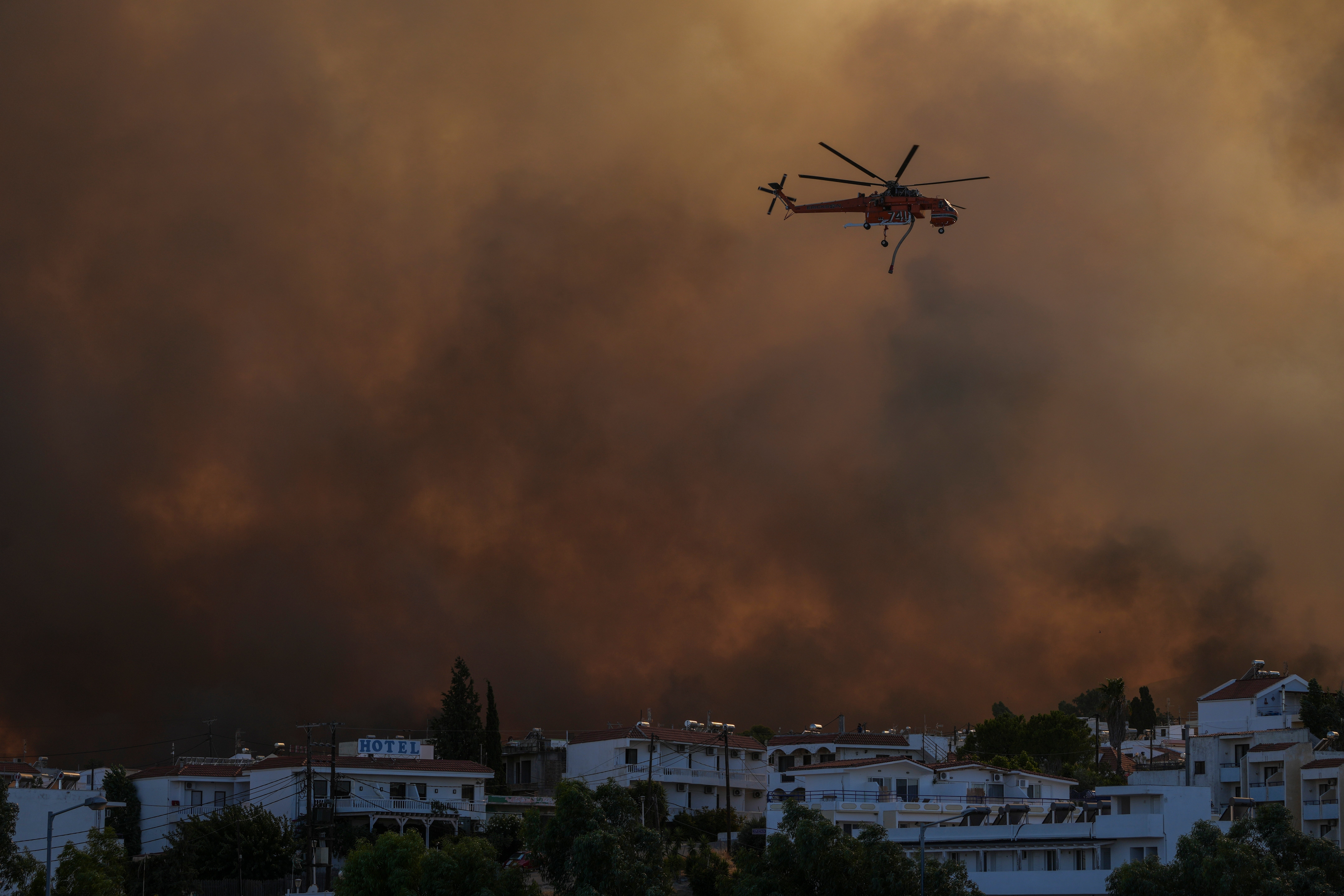California burns for months every year – soon, so will Europe
From California to Greece, the world is burning, writes David Callaway – and we’re running out of time to quell the flames


The text from our local police outside San Francisco popped on my phone just like any other. I had to look twice to register what it said. "Evacuation order – Wildflower Court and surrounding neighbourhood. Fire burning. Leave now”.
Even though wildfires were already part of our daily lives in Northern California that summer in 2020, I never thought they would approach our neighbourhood. Never, that is, until one started that morning on the hill above us.
That sudden rush of panic – my wife was still asleep – as I swept up phones and wallets and car keys, reminded me of when I had fled a wildfire in Los Angeles just months earlier while at a business conference at a high-end hotel. While lying in bed at dawn contemplating that morning’s panel discussions, I picked up my phone to see a text from the conference organiser. “Conference cancelled today. Fire approaching. Good luck.”
This week, tourists and residents of at least three Greek islands, including Rhodes and Corfu, felt the panic and adrenaline we in California have known for years as spring turns to summer. This was also the case in Spain, Portugal, Italy, France and a dozen other countries. Our endless summers have yielded to never-ending fire emergencies, thanks to global warming.
More than 200 wildfires are currently raging in America, according to the US Fire, Weather and Avalanche Centre. Almost 900 are burning in Canada, pouring smoke over the border into cities such as New York and Washington DC. In Europe, fires raged in Greece and Italy this past week as temperatures climbed to 45C and above. Ocean temperatures are approaching hot tub levels in Florida, according to news reports.
Scientists claim the extreme heat and fires, which are becoming larger and more intense, are almost certainly caused by humanity’s carbon emissions in the past 30 years.
And here’s the thing: as bad as it is now, this is only because of what we’ve already put into the environment. The full impact of what we’re emitting just this summer and next year and the year after is still to come.
At the same time, rising energy costs from Russia’s invasion of Ukraine are causing electoral turmoil from Finland to Spain, as popular support for anti-immigration, anti-green politicians rises. In the UK, the Conservative government is considering pulling back on costly green initiatives to garner popular support, with climate change almost certain to become a big issue in next year’s general election.
Summer travel season, a sacred tradition in Europe, is changing before our eyes as traditional venues such as Spain, Italy and Portugal prove too hot and too dangerous. Newspapers and travel websites bulge with advertisements for holidays in the Danish islands, or Sweden.
In London, where I’ve spent the past week, sunny weather and mild breezes have provided what may be the best weather in the world right now. Not something you usually expect to hear about London. Still, a year ago as temperatures hit 40C in England in July, hundreds of fires burned across the country.
Holidays are the least of our worries, though. In California and in flood-prone Florida, people are starting to lose the insurance on their homes, as insurance companies face mounting disaster costs. The US has experienced 12 climate/weather disaster events through mid-July, following 18 in all of last year and a record 22 in 2020, according to the National Oceanic and Atmospheric Administration.
The rise in extreme heat, fires and floods is becoming a financial crisis for companies, governments, and consumers. Chatham House, the respected British think tank, this week warned that conditions for a “painful adjustment” in financial markets were developing. It cited the potential for a food crisis caused by this summer’s extreme heat, as crops and livestock wither. It also said hot-weather diseases could increase, and noted the impact on this summer’s disasters on real estate markets. The trajectory, if true, would be ominous.
Our current culture wars over climate change are quickly succumbing to a grim political reality. We may still have the luxury to vote for or against green initiatives, but at some point, they may be thrust upon us.
When I moved to California two decades ago, what they called fire season traditionally started in mid-September and lasted about a month. These days it lasts from the final rains in mid-April until it starts raining again in late October. We are learning to adjust. So will Europe. Travel patterns will change. Migration patterns will change. Business trends will change as financial risks rise. Costs will go up. Crazy survival stories abound.
In Lake Tahoe two summers ago, frantic ski area operators turned on the snow guns in a desperate effort to stop approaching flames from damaging the ski lodges and equipment. Start-up entrepreneurs are trying to use drones to drop water and reseed forests.
Nobody knows just how bad it could still get, or what form it might take in addition to heat, flood and wildfire. They just know it will. Our capacity to adapt to this new reality without lifting a finger to help stop it is vast, though. Just Stop Oil protests bother us. We don’t want more taxes or costly initiatives, even though climate change is at our door.
That fire never did reach our neighbourhood in 2020. Firefighters put it out right away, even before we had to evacuate. We were lucky, but we won’t be ready next time either. And there certainly will be a next time.
David Callaway is founder and editor of Callaway Climate Insights, and a former editor-in-chief of USA Today





Join our commenting forum
Join thought-provoking conversations, follow other Independent readers and see their replies
0Comments